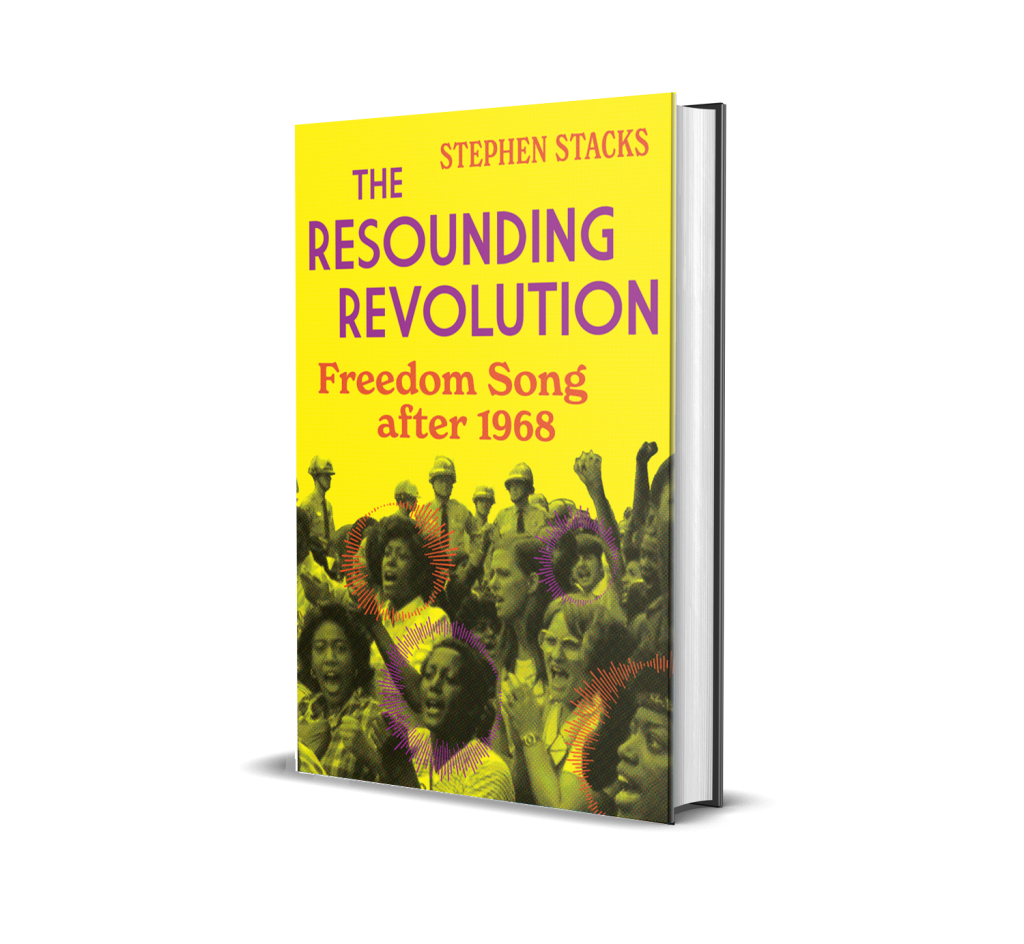Stephen Stacks, author of The Resounding Revolution: Freedom Song after 1968, answers questions about his new book.

Q: Why did you decide to write this book?
I have been involved in songleading and justice work since before I conducted the research for this book so the topic has always been personal to me. When I was in graduate school, I was drawn to studying the music that empowered the great social movements of the past. I came across a clip of Congressional leaders during a particularly contentious period holding hands and singing “We Shall Overcome” together at a 50th-anniversary commemoration of the Civil Rights Act. But the singing was absolutely lifeless and emaciated. It got me pondering the afterlives of the great songs of the Civil Rights movement and from that seed, The Resounding Revolution was born.
Q: What is the most interesting discovery you made while researching and writing your book?
While I was conducting archival research on the career of Bernice Johnson Reagon, I came across her correspondence with a White folksinger named Anne Romaine from the period after the Civil Rights movement. Their collaboration was fascinating for two reasons: 1) it demonstrated that they were very much considering their musical work a continuation of the Civil Rights Movement long into the 1970s and 2) their relationship was a bit rocky at times. I found several letters that were quite forceful. Reagon was never afraid to call Romaine out when she overstepped and yet, she remained in coalition with her for many years. Their collaboration demonstrated what I call musical coalition politics in the book, a major musico-political innovation of Reagon’s.
Q: What myths do you hope your book will dispel or what do you hope your book will help readers unlearn?
The biggest myth I hope The Resounding Revolution dispels is the idea that the freedom songs of the Civil Rights movement are a dead, historical repertoire for a movement that ended back in the 1960s. On the contrary, freedom singing is very much alive, and there are revelatory continuities between contemporary movements and the Black Freedom struggle of the 1950s and 60s.
Q: Which part of the publishing process did you find the most interesting?
So far, I’ve been in awe of the work of copy editors and am excited to see what the cover designer comes up with!
Q: What is your advice to scholars/authors who want to take on a similar project?
The music of the Black Freedom movement is such a rich reservoir of meaning. It is always relevant, always striking, always inspiring. My only advice is to remain suspicious of the narratives you have received about this movement and its music. Investigate everything you take for granted and keep open ears and an open mind.
Q: What do you like to read/watch/or listen to for fun?
I am an avid reader (and writer) of fiction, especially speculative fiction. I watch lots of crime and science fiction thriller television. When I’m not listening for work, I usually gravitate towards the music of my youth (90s rock/alternative) and jazz.

Stephen Stacks is an assistant professor of music at North Carolina Central University.
